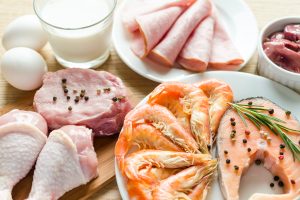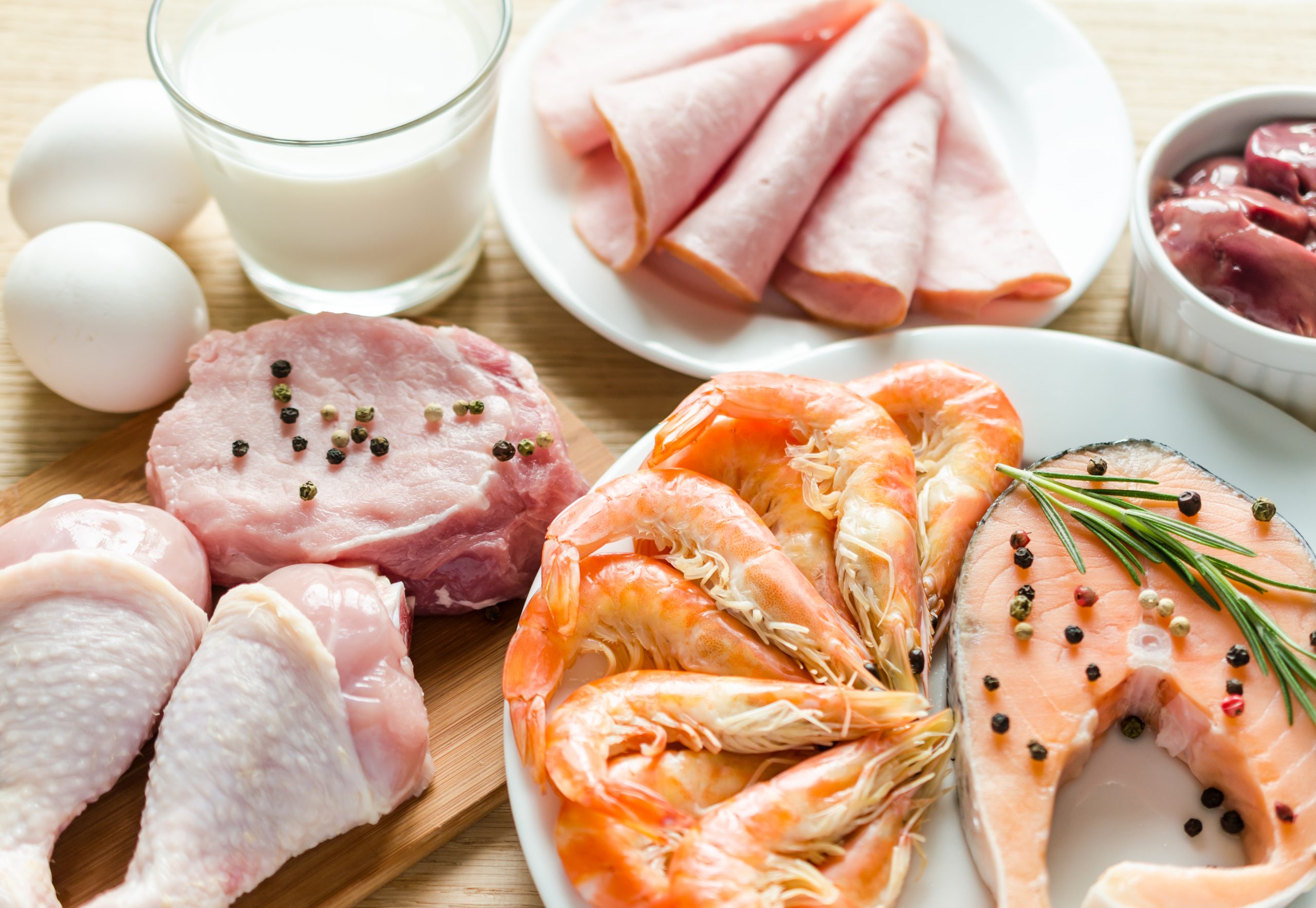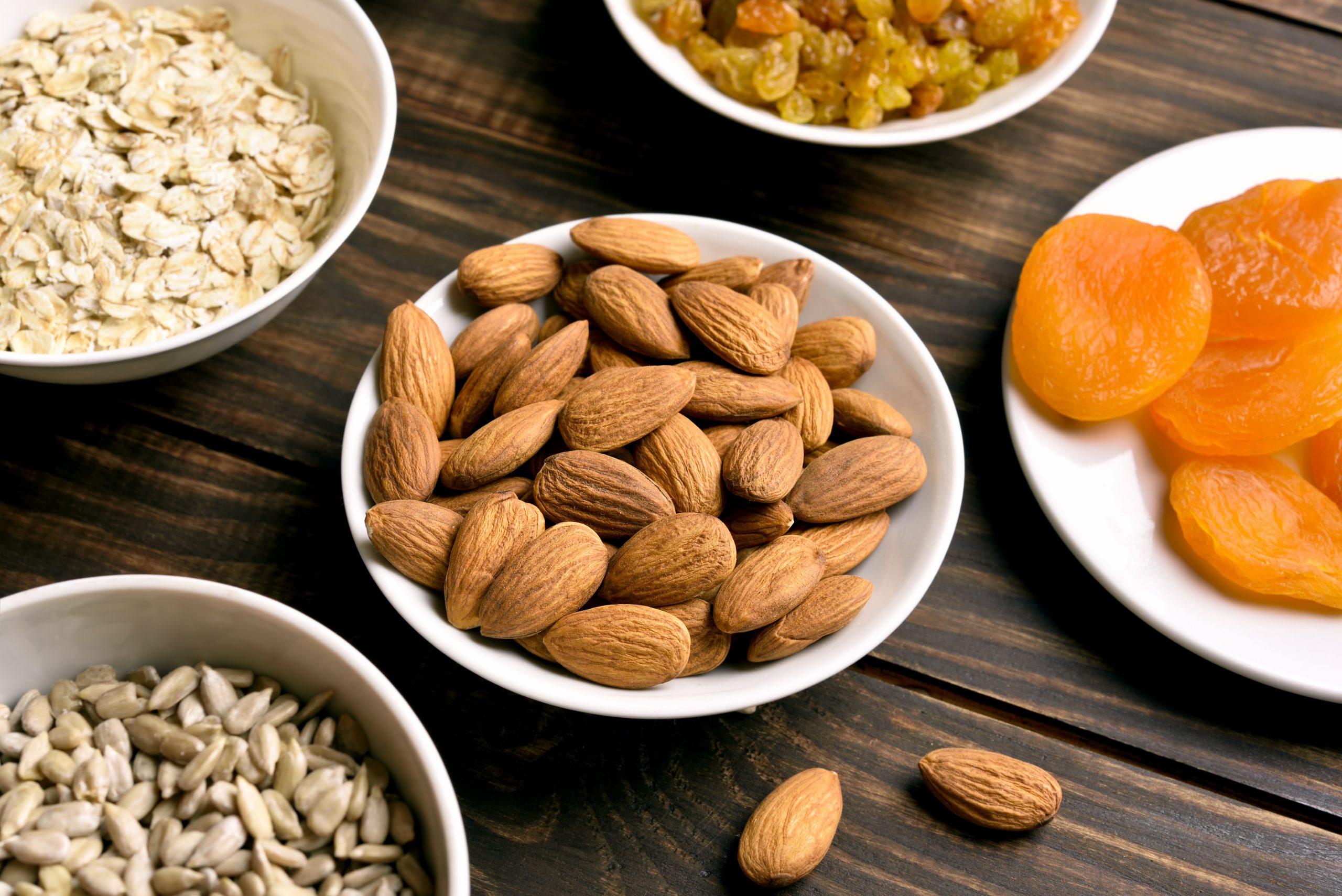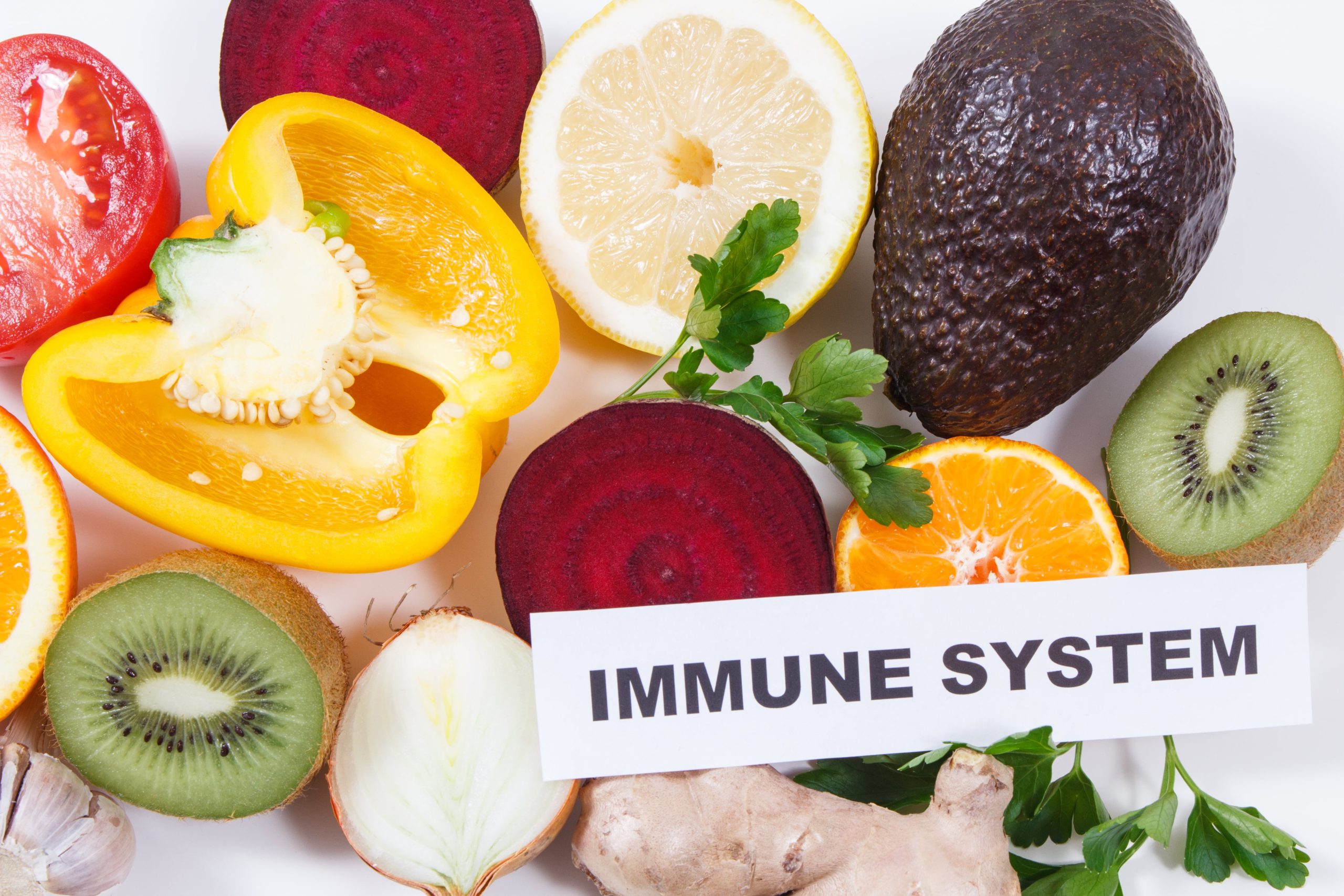Do you want to build muscle, stay energized throughout the day, and maintain a healthy lifestyle? Protein is essential for all of these things. But what is protein, exactly? Protein is one of the most important macronutrients in your diet and can be found in various forms from both animal and plant-based sources. In this article, you will learn about the importance of including quality sources of protein in your diet as well as how much protein you need per day and some popular high-protein foods. So if you’re ready to take your health to the next level with protein, read on!
Sources of Protein
Protein is an essential macronutrient that provides numerous benefits when included in a healthy diet. It helps build muscle mass, supports overall health, and regulates hormones and enzymes in the body. There are many sources of protein to choose from, both animal-based and plant-based. Animal sources of protein include lean meats, poultry, fish, eggs, dairy products, and nuts. Plant-based proteins include legumes such as beans and lentils, grains like quinoa and oats, nut butter such as peanut butter or almond butter, seeds such as flax or chia seeds, and plant-based proteins like soy or tofu. Depending on your calorie intake goals, it is recommended to consume 0.8 – 1 gram of protein per kilogram of body weight per day for adults over 19 years old. For athletes or those looking to gain muscle mass, it could be beneficial to increase this amount up to 1.2 – 2 grams per kilogram of body weight per day. Eating a variety of complete proteins from both animal and plant-based sources can help ensure you are getting all the essential amino acids needed for optimal health!
Protein is a key component to a well-rounded and healthy diet, and there are plenty of sources to choose from to incorporate into your daily meals. From lean meats, nuts, and dairy products to legumes, grains, and plant-based proteins like tofu or soy, the options are endless! But that’s not all – stay tuned for our next section as we dive into Animal Products and their unique benefits.
Animal Products
Animal products are an excellent source of protein, essential vitamins and minerals, and healthy fats. Lean meats such as beef, pork, chicken, fish, and turkey are a great way to get your daily intake of protein. Dairy products such as yogurt, cheese, and milk provide essential nutrients like calcium and B vitamins. Eggs are a great source of complete proteins as they contain all nine essential amino acids needed for optimal health. Nuts and nut butter are also good sources of plant-based proteins and healthy fats. Eating animal products in moderation can be beneficial for overall health, however, it is important to keep in mind that too much animal protein can increase your risk of chronic diseases such as heart disease or cancer. It’s important to not only look at the amount of animal product you consume but also at the quality – always opt for leaner cuts with less fat content when possible!
Plant-Based Proteins
Plant-based proteins are becoming increasingly popular as more people choose to reduce their consumption of animal products. Plant-based proteins can include legumes, nuts, seeds, and grains. Legumes such as beans and lentils are an excellent source of protein, fiber, and other essential vitamins and minerals. Nuts like almonds, walnuts, and cashews contain healthy fats in addition to protein. Seeds such as pumpkin, chia, and hemp are a great way to get your daily dose of plant-based proteins. Grains like quinoa, bulgur wheat, and oats provide a good balance of carbohydrates and proteins. Many plant-based proteins also contain additional health benefits such as antioxidants, phytochemicals, or dietary fibers that can help promote overall health. Eating a variety of plant-based proteins can help you meet your daily nutrient requirements while also supporting a healthy lifestyle.
Dairy Products
They provide essential amino acids that our body needs to build muscle mass and carry out other bodily functions. Dairy products are especially important for those with an active lifestyle, as they can help increase protein intake and support healthy muscle recovery. Cheese is an especially good source of protein due to its high content of casein, a slow-digesting dairy protein. Yogurt contains both casein and whey proteins, which makes it ideal for providing sustained energy throughout the day or post-workout. Milk is also a great source of calcium, which is essential for strong bones and teeth. For those looking to increase their daily intake of dietary proteins, dairy products should be included in their diet plan.
Other Sources of Protein
Other sources of protein can be found in both animal and plant-based products. Animal products such as eggs, meat, poultry, and fish are all complete proteins, meaning they contain all of the essential amino acids that our bodies need. Peanut butter is also a great source of plant-based protein and healthy fats. Other plant-based proteins include quinoa, beans, lentils, nuts, and seeds. For those looking to increase their daily intake of dietary proteins, it is best to consume a variety of foods from both animal and plant sources for optimal benefits.
The recommended amount of dietary protein per day depends on a person’s age and activity level. Generally speaking, adults should aim for 0.36 grams of protein per kilogram of body weight each day to maintain a healthy diet. For those who are more active or athletes engaging in intense training regimens, the recommended intake is between 0.8–1 gram per kilogram of body weight each day to support muscle growth and recovery. When calculating total calorie intake for the day, 10–35% should come from protein-rich foods including dairy products, eggs, fish, legumes, and nuts/seeds. Keeping track of your daily protein intake will help ensure you get enough nutrients to support your overall health goals!
Types Of Proteins And Amino Acids
Proteins are essential for many bodily functions, from building muscle to maintaining healthy hair and skin. Proteins are made up of amino acids, which can be divided into two main categories: essential and non-essential. Non-essential amino acids can be synthesized by the body from other sources and do not need to be consumed directly.
Animal proteins are usually considered complete proteins, as they contain all nine essential amino acids – making them a great source of protein for those looking to increase muscle mass or improve their overall health. Animal sources include red meat, poultry, eggs, dairy products, and fish. Plant-based proteins such as beans, nuts/seeds, soy products, and grains can also provide a good source of protein; however, most are incomplete proteins (lacking one or more of the essential amino acids). To obtain all nine essential amino acids on a plant-based diet it is important to mix different sources (e.g., legumes with whole grains). Peanut butter is an example of a complete plant-based protein!
It is recommended that adults consume 0.8 grams of protein per kilogram body weight per day to ensure adequate intake of the essential amino acids; however, this amount may vary depending on individual goals and activity level. Eating a variety of nutrient-dense foods will help you meet your daily protein requirements while also providing additional vitamins and minerals for an overall healthy diet. But what exactly are these essential amino acids? Stay tuned to find out!

Essential Amino Acids
Essential amino acids are a type of protein molecule that cannot be produced by the body and must therefore be obtained through diet. They are essential for many bodily functions, including building muscle, maintaining healthy hair and skin, and providing energy. These can be found in both animal and plant-based foods such as red meat, poultry, eggs, dairy products, fish, and beans.
It is important to ensure adequate intake of essential amino acids to maintain good health. The recommended amount for adults is 0.8 grams per kilogram of body weight per day; however, this amount may vary depending on individual goals or activity level. Eating a variety of nutrient-dense foods will help you meet your daily protein requirements while also providing additional vitamins and minerals for an overall healthy diet.
Foods Rich In Protein-Complete Proteins
Complete proteins are foods that contain all nine essential amino acids which the body cannot produce itself. These types of proteins can be found in both animal and plant-based sources, such as meat, eggs, dairy products, fish, and beans. Eating a variety of these foods can help ensure adequate intake of the essential amino acids needed for healthy muscle growth, tissue repair, and other vital bodily functions.
Animal products such as red meat, poultry, eggs, and dairy provide the most complete source of protein. Plant-based sources like legumes, nuts, and seeds also offer important proteins but may lack certain essential amino acids. Combining various plant-based proteins at each meal is one way to ensure you are getting all the necessary amino acids your body needs. Peanut butter on toast or a veggie burger with beans are great examples of complete proteins that can easily be included in your daily diet.
Overall, it is important to focus on eating a wide variety of nutrient-rich foods to meet your daily protein requirements and ensure adequate intake of all essential amino acids for optimal health.
Healthy Diet With Appropriate Amounts Of Protein Calorie Intake & Balanced Diet
A healthy diet should include an adequate amount of protein for optimal health. Protein helps build and repair muscle tissue, regulate hormones, produce enzymes, and help to maintain a healthy weight. Most experts recommend that adults consume 0.8 to 1.2 grams of protein per kilogram of body weight per day, depending on activity levels, age, and other factors.
To get the recommended amount of protein while still maintaining a balanced diet it is important to focus on eating nutrient-rich foods such as lean meats, eggs, dairy products, fish, nuts, seeds, and legumes. Plant-based proteins can be combined in various ways throughout the day to ensure you are getting all the essential amino acids needed for proper bodily functions. It is also important to monitor your calorie intake and make sure not to exceed your daily caloric needs when adding extra sources of protein to your diet.
Eating a wide variety of nutrient-rich foods with appropriate amounts of protein will help you achieve optimal health and wellness for years to come!
Popular High-Protein Foods
High-protein foods are a great way to help you meet your daily protein needs while maintaining a healthy diet. Some of the most popular high-protein foods include peanut butter, animal products such as eggs, dairy, fish, and lean meats, and plant-based proteins such as legumes, nuts, and seeds.
Peanut butter is a delicious and versatile source of protein that can be added to meals or snacks throughout the day. Two tablespoons of peanut butter provide around 8g of protein. When choosing peanut butter it is important to look for varieties that are low in sugar and made with natural ingredients.
Animal products are an excellent source of complete proteins which contain all nine essential amino acids needed for optimal health. Lean meat, poultry, fish, eggs, and dairy are all excellent sources of dietary protein. When choosing animal products it is best to opt for organic, grass-fed options whenever possible.
Plant-based proteins can be a great addition to any diet as they provide many essential vitamins and minerals as well as protein. Legumes such as lentils or beans are an excellent source of plant-based protein with around 14g per cooked cup. Nuts and seeds also offer a good amount of protein with 2 tablespoons providing around 5g each.
Final Thoughts On The Importance Of Including Quality Sources Of Protein In Your Diet
It is clear that including quality sources of protein in your diet is essential for maintaining optimal health. Different types of protein-rich foods can provide you with the essential amino acids needed to build muscle mass, support metabolism and reduce cravings. It is important to remember that not all proteins are created equal, so it is best to opt for natural, unprocessed sources such as animal products, legumes, nuts, and seeds. Aiming for around 0.8g of protein per kilogram of body weight per day or up to 30% of your total calorie intake could also be beneficial. With a bit of planning, you can easily incorporate high-quality sources of dietary protein into your meals and snacks throughout the day.











